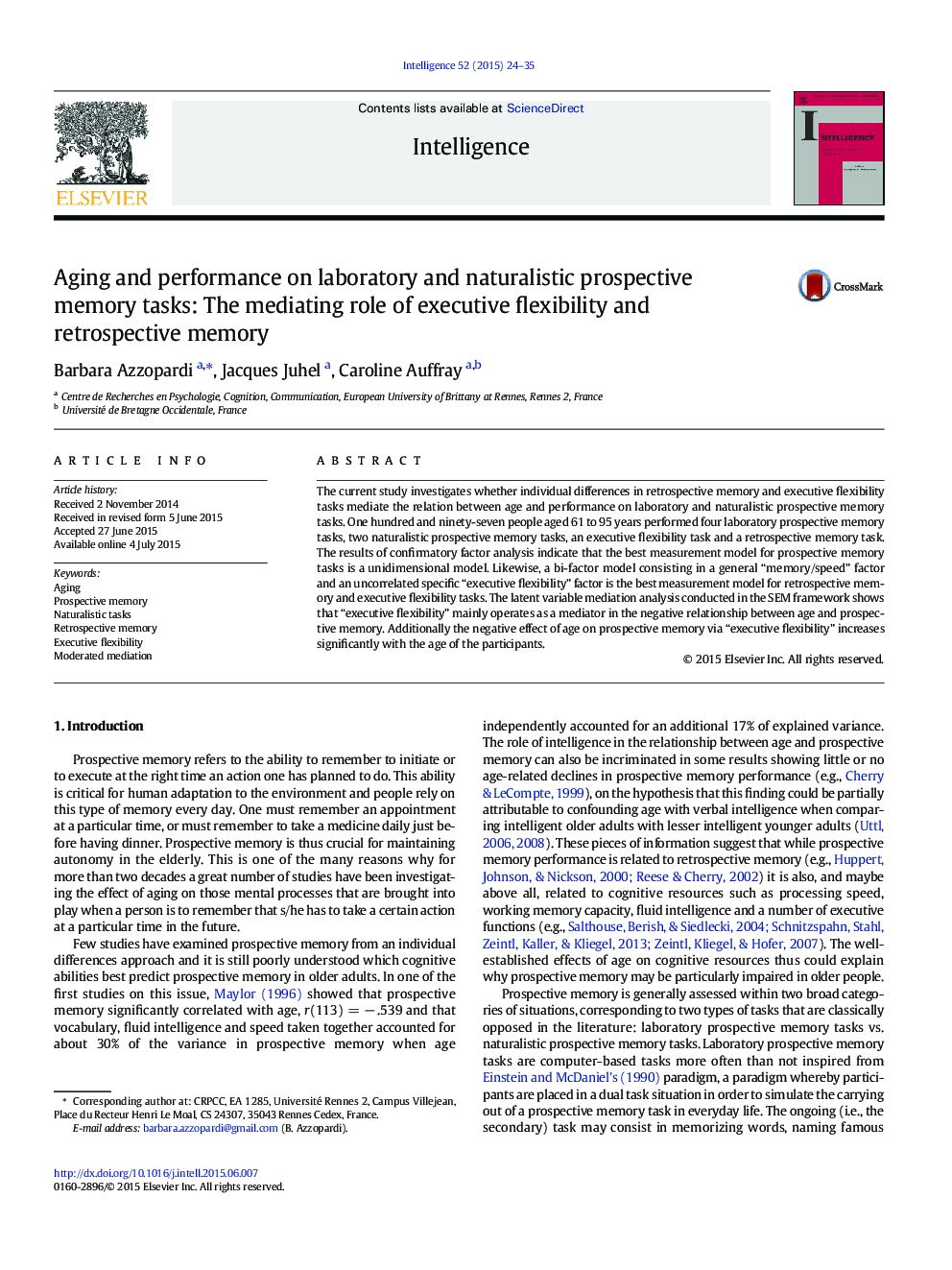| Article ID | Journal | Published Year | Pages | File Type |
|---|---|---|---|---|
| 929013 | Intelligence | 2015 | 12 Pages |
•Investigated the relation between prospective memory, retrospective memory and executive flexibility in older adults•Used a large (N = 197) sample of older adults whose ages span a wide age range•Found a modest convergent validity of naturalistic and laboratory prospective memory tasks•Executive flexibility mediates age-related decline in prospective memory.•Age moderates the aforementioned mediation effect.
The current study investigates whether individual differences in retrospective memory and executive flexibility tasks mediate the relation between age and performance on laboratory and naturalistic prospective memory tasks. One hundred and ninety-seven people aged 61 to 95 years performed four laboratory prospective memory tasks, two naturalistic prospective memory tasks, an executive flexibility task and a retrospective memory task. The results of confirmatory factor analysis indicate that the best measurement model for prospective memory tasks is a unidimensional model. Likewise, a bi-factor model consisting in a general “memory/speed” factor and an uncorrelated specific “executive flexibility” factor is the best measurement model for retrospective memory and executive flexibility tasks. The latent variable mediation analysis conducted in the SEM framework shows that “executive flexibility” mainly operates as a mediator in the negative relationship between age and prospective memory. Additionally the negative effect of age on prospective memory via “executive flexibility” increases significantly with the age of the participants.
